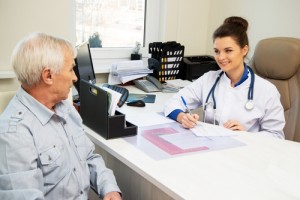Experimental T-817MA Therapy Currently Being Tested for Mild to Moderate Alzheimer’s Disease
Written by |

 A Phase 2 randomized, double blind, placebo-controlled, parallel group study is currently enrolling at multiple test centers in the United States to evaluate the efficacy and safety of T-817MA as a potential treatment in patients with mild to moderate Alzheimer’s disease.
A Phase 2 randomized, double blind, placebo-controlled, parallel group study is currently enrolling at multiple test centers in the United States to evaluate the efficacy and safety of T-817MA as a potential treatment in patients with mild to moderate Alzheimer’s disease.
This study is a joint phase II clinical trial between lead partner Toyama ChemicalCo., Ltd., a company associated with the Fujifilm Corporation group in Japan, and the Alzheimer’s Disease Cooperative Study (ADCS), the largest Alzheimer’s Disease therapeutic research consortium in the United States, based at the University of California San Diego (CA). ADCS is a clinical trials consortium, established and supported by the National Institute on Aging, part of the National Institutes of Health (NIH), with the aim of evaluating Alzheimer’s disease interventions. It is led by Dr. Paul Aisen, one of the leading experts in the field of Alzheimer’s disease in the US. The study started on March 2014 and will last for two years.
The number of dementia patients is approximately 44 million worldwide, and is estimated to reach 76 million by 2030. More than half of dementia patients suffer from Alzheimer’s disease, and that tendency is expected to increase. The standard therapies available for treating the disease include acetylcholinesterase inhibitors, such as donepezil hydrochloride. However, these drugs only target the neurotransmission deficits to give temporary improvement to the patients’ symptoms. Therefore, there is an urgent need for the development of a new class of therapies to treat Alzheimer’s disease.
T-817MA is an Alzheimer’s disease drug discovered by Toyama Chemical, which has neuroprotective properties that act on amyloid-induced neurotoxicity, promotes neurite outgrowth, improves memory deficits, and has been shown to have a strong efficacy in animal models.
[adrotate group=”3″]
The current study for T-817MA includes 450 patients of both gender and ages between 55 and 85 years old. Enrolled patients have to fit the following criteria: diagnosed with mild to moderate Alzheimer’s disease, taking the standard-therapy donepezil (Aricept®) for at least 6 months or treated with memantine (Namenda®) but only when prescribed in combination with donepezil, weight of no more than 220 pounds, female patients must be postmenopausal or surgically sterile, living in the community, the patients partner or caregiver should have regular contact with participant (at least 10 hours per week) and may accompany his/her to study visits. The patients exclusion criteria was: patients with clinically significant cardiac, hepatic or renal impairment, non-Alzheimer’s dementia i.e. vascular dementia, frontotemporal disorder, Lewy body dementia, and taking any drug other than donepezil or memantine for Alzheimer’s disease, such as rivastigmine (Exelon®) or galantine (Razadyne®).
Participants of this study are randomly divided in three groups. Two groups are testing T-817MA, a neuroprotective agent that acts on amyloid-induced neurotoxicity and memory deficits. The third group is receiving a placebo (inactive drug). The efficacy of two different doses of the drug, 224 mg and 448 mg, taken once daily, are being compared. Participants take tests to determine the drug’s effects on memory, other aspects of cognition, and daily functioning. Physical exams, blood tests, and brain scans (MRI) are also being conducted.
The Alzheimer’s disease burden is rapidly increasing in the aging society, therefore, there are elevated expectations for T-817MA as an innovative therapy with a very high efficacy for the treatment of Alzheimer’s patients.
The Fujifilm Group is committed to further accelerating the development of T-817MA by collaborating with the Kyoto University Center for Induced Pluripotent Stem (iPS) Cell Research and Application, in which patient-derived iPS cells are used as cellular models to identify biomarkers that can predict the efficacy of the T-817MA.





